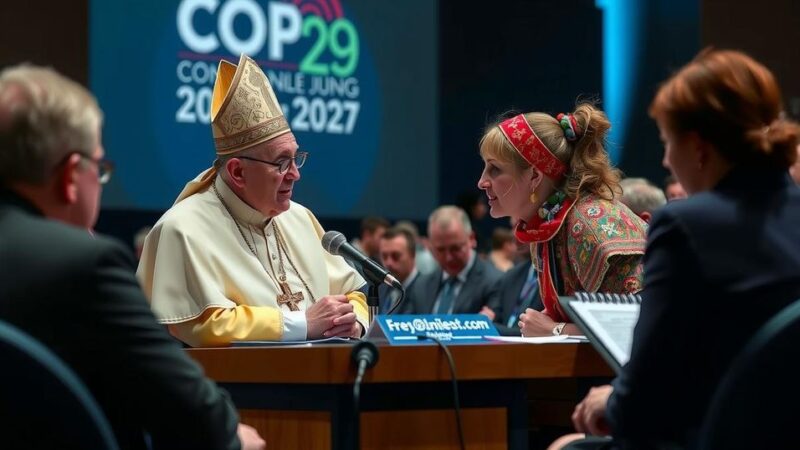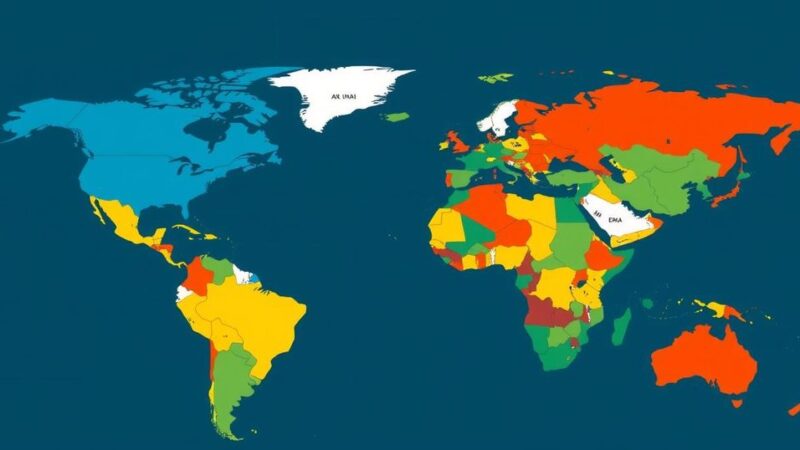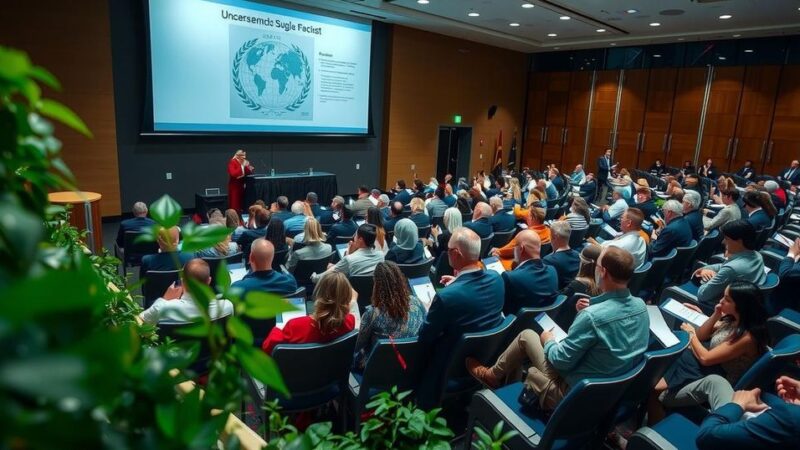Papua New Guinea is set to participate in the International Court of Justice to address climate change’s impacts and seek financial compensation. This initiative follows a UNGA request for an advisory opinion on states’ legal obligations regarding climate change. PNG aims to amplify the challenges faced by Pacific nations affected by rising sea levels and climate fluctuations, expecting the ICJ’s opinion to clarify state responsibilities and foster international cooperation for climate action.
Papua New Guinea has announced its inaugural participation in the International Court of Justice (ICJ) to address the urgent impact of climate change, with aspirations to secure compensation and access climate financing. Justice and Attorney-General Minister, Pila Niningi, articulated that the nation intends to present an oral statement concerning the legal obligations of states related to climate change, following a directive from the United Nations General Assembly (UNGA) for an advisory opinion on this pressing issue. Niningi noted this pivotal moment underscores PNG’s steadfast commitment to environmental stewardship and its ongoing struggle against the adverse effects of climate change. A delegation including Justice and Attorney-General Secretary Dr. Eric Kwa, Acting Solicitor General E’ava Geik, Public Solicitor Leslie Mamu, and officials from the Department of Climate Change and Development Authority will travel to the Netherlands on December 2. Their mission is to engage with the ICJ for a duration of two weeks, reflecting PNG’s decisions made during the 79th UNGA convened in Fiji, attended by justice ministers and legal representatives from numerous Pacific and Caribbean nations. Minister Niningi further emphasized that PNG’s involvement in the ICJ process aims to give a voice to the Pacific Island nations grappling with the direct repercussions of climate change, such as rising sea levels and fluctuating weather patterns. This advisory opinion from the ICJ is anticipated to delineate the legal responsibilities of nations in the fight against climate change, thereby providing vital guidance regarding international law obligations, which include human rights and environmental treaties. Prime Minister James Marape, speaking at the UNGA in Fiji, remarked on PNG’s rich biodiversity, extensive rainforests, and diverse indigenous cultures, all of which are now at a critical juncture of preservation versus loss and extinction. He emphasized the necessity of global collaboration to protect some of the Earth’s remaining tropical forests, particularly those in PNG, which are pivotal to the planet’s ecological balance. Marape concluded this urgent call for action by asserting that equitable compensation and access to climate financing are essential for forest nations like PNG to sustainably manage their natural resources while confronting the global climate crisis.
The issue of climate change has emerged as a significant threat to the environment, ecosystems, and human livelihoods globally. Pacific Island nations, particularly, have been vocal about the disproportionate effects they endure, such as rising sea levels and extreme weather events. In response, these nations are seeking legal recourse through international avenues like the ICJ to hold more developed nations accountable for their role in climate change. The UNGA’s initiative to solicit an advisory opinion from the ICJ highlights an emerging movement towards recognizing and enforcing legal frameworks that could potentially mitigate these adverse effects.
In conclusion, Papua New Guinea’s participation in the International Court of Justice represents a landmark initiative to advocate for climate change justice, not only for itself but also for other vulnerable Pacific Island nations. The anticipated advisory opinion from the ICJ may provide crucial legal clarifications that affirm state responsibilities in addressing climate change, potentially leading to improved support and compensation mechanisms for affected nations. This proactive approach emphasizes the collaboration needed among global nations to protect critical ecosystems, such as PNG’s rainforests, and to ensure sustainable practices that address the broader climate crisis.
Original Source: www.thenational.com.pg





